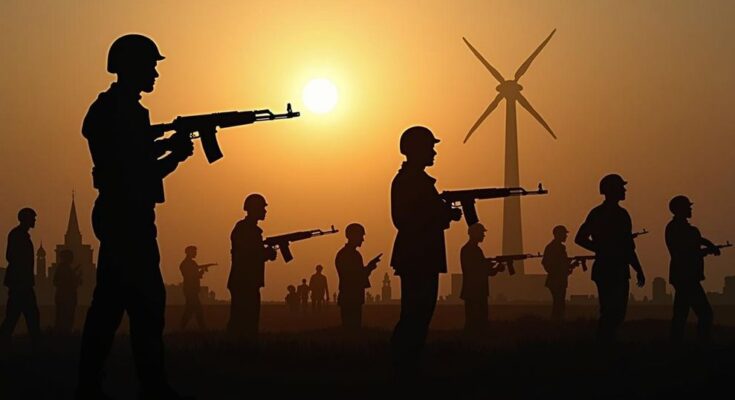The United Arab Emirates has accused the Sudanese army of bombing its ambassador’s residence in Khartoum, leading to plans for a formal complaint to the United Nations. The incident reflects heightened diplomatic tensions amidst ongoing conflict in Sudan, with allegations and counter-allegations between the UAE and Sudan regarding support for paramilitary groups. The UAE embassy continues to operate in Port Sudan despite the turmoil.
On September 29, 2024, the United Arab Emirates (UAE) officially accused the Sudanese army of bombing its ambassador’s residence in Khartoum, leading to intentions to file a formal complaint with the United Nations and other regional bodies. The UAE’s foreign ministry reported that a Sudanese military aircraft was responsible for the attack, which resulted in significant damage to the diplomatic premises; however, the exact timing of the incident remains unspecified. In a statement, the Ministry of Foreign Affairs expressed its plan to submit a letter of protest to the League of Arab States, the African Union, and the United Nations, framing the bombing as a severe breach of the principle of inviolability of diplomatic missions. Diplomatic tensions have escalated since the onset of conflict in Sudan, with all foreign diplomatic missions vacating Khartoum in April 2023 due to hostilities between the Sudanese army and the paramilitary Rapid Support Forces (RSF). Most embassies have since relocated to Port Sudan. The Sudanese military is currently engaged in significant operations against RSF positions in Khartoum and has made allegations against the RSF for looting foreign diplomatic missions. Relations between the UAE and Sudan have soured, with Sudan accusing the UAE of supporting the RSF—accusations the UAE has vigorously denied. Although the UAE ambassador departed Sudan after the fighting commenced, the UAE embassy remains operational in Port Sudan. Furthermore, Sudan has levied a complaint with the UN Security Council, asserting that it possesses evidence of the UAE supplying arms to the RSF through Chad, an assertion the UAE has categorically dismissed as “utterly false and baseless.” Additionally, earlier this year, both countries expelled each other’s diplomats, indicating a significant deterioration in bilateral relations.
The recent events stem from the ongoing conflict in Sudan which erupted in April 2023 between the Sudanese army and the RSF. The situation has severely affected diplomatic relations, with many foreign missions, including that of the UAE, relocating to Port Sudan amidst rising violence. Accusations of external support, particularly concerning the UAE’s alleged backing of the RSF, have become prominent, further straining relations. The attack on the UAE ambassador’s residence marks a critical point of contention, representing a violation of diplomatic regulations, and amplifies the ongoing tensions in the region.
In conclusion, the accusations made by the UAE against the Sudanese army highlight a significant international diplomatic issue amid the turmoil in Sudan. The planned formal complaint to the UN underscores the UAE’s position on the inviolability of diplomatic premises, while the broader geopolitical ramifications of the Sudan conflict, particularly the disputes between the UAE and Sudan, continue to unfold. The situation remains fluid, with the potential for further escalating tensions between the involved parties.
Original Source: sudantribune.com




